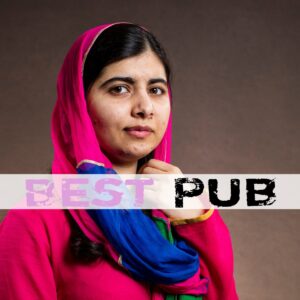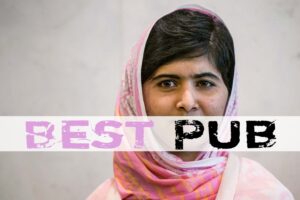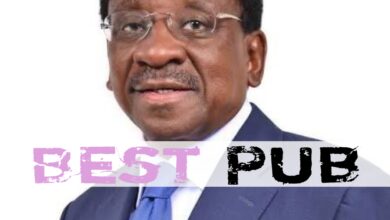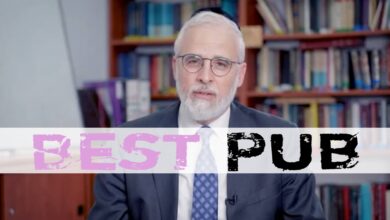Malala Yousafzai Biography: The Complete Account, Verified Records & Legacy

Malala Yousafzai is a Pakistani activist known for her fight for girls’ education. She was born on July 12, 1997, in Mingora, Swat Valley, Pakistan. Today, she is 28 years old.
Also Read: Diana Turova Biography: The Complete Account, Verified Records & Legacy
Malala grew up in a family that valued learning. Her father, Ziauddin Yousafzai, ran a school and supported her passion for education. From a young age, she loved going to school and dreamed of becoming a doctor.
In 2007, the Taliban took control of Swat Valley. They banned girls from attending school. Malala refused to stay silent. She started writing a blog for BBC Urdu under the name “Gul Makai.” She described life under the Taliban and spoke out for girls’ rights.
On October 9, 2012, Malala was shot in the head by a Taliban gunman while riding a school bus. She survived the attack and was flown to the United Kingdom for treatment. Her recovery was long, but she stayed strong.
After the attack, Malala became a global symbol of courage. She continued her work from Birmingham, England. In 2013, she co-founded the Malala Fund with her father. The fund supports education projects around the world.
In 2014, Malala received the Nobel Peace Prize. She was only 17 years old, making her the youngest Nobel laureate ever. She shared the award with Kailash Satyarthi, an Indian child rights activist.
Malala studied Philosophy, Politics, and Economics at Lady Margaret Hall, Oxford University. She graduated in 2020. In 2021, she married Asser Malik, a cricket official.
Today, Malala works through her foundation to help girls go to school. She speaks at global events and meets with world leaders. Her book, I Am Malala, tells her story and inspires millions.
Malala’s success comes from her bravery and belief in education. She turned a personal tragedy into a powerful movement. Her work continues to change lives across the world.
Malala Yousafzai Early Life and Family Background
Malala Yousafzai was born on July 12, 1997, in the scenic Swat Valley of Pakistan, specifically in the town of Mingora. Her early life was profoundly shaped by the presence and influence of her father, Ziauddin Yousafzai. He was a dedicated teacher, a passionate poet, and a determined education activist who founded and ran the Khushal Girls High School and College. Malala’s home was not just a residence; it was a center for learning and progressive thought. This environment instilled in her a deep, almost innate, love for knowledge and a firm belief in the right to education, especially for girls. Her mother, Tor Pekai Yousafzai, provided a loving and supportive family structure, though Malala credits her father with fostering her public voice. The tranquil setting of the Swat Valley experienced a devastating shift starting in 2007. The rise of the Taliban in the region dramatically changed the cultural and political context of her upbringing. The militant group began enforcing a strict interpretation of Islamic law, banning activities like music and television, and most critically, issuing edicts against female education. This period of violence and oppression, where hundreds of schools were destroyed, forged Malala’s commitment to activism. She witnessed firsthand the systematic denial of girls’ education rights. The experience was not just academic; it was deeply personal. Her father refused to close his school, even as threats mounted. This act of defiance was the primary catalyst for Malala’s journey from a quiet, bright schoolgirl to a global human rights activism figure. The courage shown by her parents in the face of violent extremism was the foundation upon which her own, future bravery would be built. The Yousafzai family, therefore, represented a core of non-violent resistance.
Also Read: Lara Esquibil Biography: The Complete Account, Verified Records & Legacy
Malala Yousafzai Education and Early Activism
Malala Yousafzai developed a powerful passion for learning from her earliest years, thanks largely to the powerful influence of her father. As an educator himself, Ziauddin Yousafzai treated his daughter not just as a child, but as an intellectually capable person whose opinions mattered. He often engaged her in political discussions, nurturing her confidence to speak her mind freely, a rare encouragement for a girl in her society at the time. This foundation of self-belief proved crucial when the Taliban in Swat Valley escalated their campaign to shut down girls’ schools. Malala saw her fundamental right being stripped away. She began to speak out locally, first through televised interviews and then in private conversations. Her early activism cemented itself when she started blogging for BBC Urdu in early 2009. At only 11 years old, Malala wrote anonymous diary entries detailing the chilling reality of life under Taliban rule, using the telling pseudonym “Gul Makai,” which means “cornflower” in Pashto and is a heroine’s name in a folk tale. The blog chronicled the daily fear, the bombings, and her desperate longing to return to her classroom. This act of writing, of using the pen against the sword, gave her a voice and brought international attention to the crisis in Pakistan without initially revealing her identity. She famously stated that she realized the importance of her voice when she was silenced. The blog entries became a powerful testament to the resilience of children seeking an education during a time of extreme repression. Her bravery in continuing to advocate for girls’ education rights, even after her identity became known and she received various accolades like the National Youth Peace Prize, positioned her as an unapologetic symbol of hope and defiance against fundamentalist tyranny.
Malala Yousafzai Taliban Attack and Global Outcry
The consequences of Malala Yousafzai’s fearless advocacy reached a violent peak on October 9, 2012. While she was riding home on her school bus in Mingora, a masked Taliban gunman stopped the vehicle and asked for her by name. The assailant then shot her point-blank in the head. She was targeted specifically for her unwavering campaign in support of girls’ education and her criticism of the militants. The intent was to silence her voice permanently and instill terror in anyone else who dared to challenge the group’s oppressive decrees against women’s rights. However, the attack achieved the exact opposite of the Taliban’s goal, propelling her cause onto the world stage. The brutal attack triggered an immediate and massive global outcry. In Pakistan, citizens rallied to protest the violence, and local clerics condemned the shooting as “un-Islamic.” Due to the severity of her injuries, Malala was first treated in a Pakistani military hospital before being flown to the United Kingdom for specialized medical treatment at the Queen Elizabeth Hospital in Birmingham. The international support, involving cooperation between the Pakistani, British, and UAE governments for her transfer, underscored the gravity of the event. She was not only fighting for her life but had instantly become an unyielding symbol of resistance and courage against extremism. World leaders, celebrities, and ordinary people everywhere united in expressing solidarity and outrage. This moment solidified her emergence as a worldwide emblem for the right of all children to an education, transforming a local fight in the Swat Valley into a universal human rights issue. Her survival against the odds became a narrative of triumph for the global movement for justice.
Malala Yousafzai Recovery and Continued Advocacy
Following the harrowing attack, Malala Yousafzai began a long and arduous process of rehabilitation in Birmingham, UK, where she was treated for her life-threatening injuries. She underwent multiple surgeries, including one to repair a facial nerve. After her recovery, she and her family permanently relocated to Birmingham for safety and stability. For many, this could have been an endpoint—a chance to lead a quiet, protected life. For Malala, it was a new beginning. She chose to redouble her efforts, embracing the platform that her near-death experience had created. This determination marked the beginning of her continued advocacy on an unprecedented global scale. In 2013, she co-founded the Malala Fund with her father, Ziauddin. This non-profit organization is dedicated to securing 12 years of free, safe, and quality education for every girl, focusing its work in countries facing significant barriers to female education. On her 16th birthday, July 12, 2013, she delivered a powerful, moving speech at the United Nations Youth Assembly. The UN honored the day as “Malala Day” to highlight her courage and the global struggle for education. Through frequent public speaking engagements, international trips, and media appearances, she shared her story and championed the causes of girls globally, effectively answering the PAA query What are Malala’s contributions to education? Her tireless work through the Malala Fund and her powerful voice on stages worldwide established her as a pivotal figure in the fight for human rights activism and gender equality, reinforcing that the pen and the book are truly mightier than the gun.
Malala Yousafzai Nobel Peace Prize and Global Recognition
The world acknowledged Malala Yousafzai’s extraordinary impact in 2014 when she was awarded the Nobel Peace Prize. At just 17 years old, she became the youngest laureate ever to receive the prestigious honor, a testament to her profound courage and tireless dedication to girls’ education rights. The Nobel Committee recognized her “heroic struggle” for the right of girls to education, emphasizing that children and young people can contribute to improving their own situations even under the most dangerous circumstances. The award served not just as a personal honor but as a massive spotlight on the issue she championed. She did not receive the honor alone; she shared the prize with Kailash Satyarthi, an Indian children’s rights activist renowned for his decades-long work against child labor and trafficking. The joint award was highly symbolic, bringing together a young Muslim Pakistani activist and an older Hindu Indian activist in a shared struggle against the suppression of children. The Nobel Committee specifically highlighted the significance of an Indian and a Pakistani joining forces to combat extremism and advocate for education. The award propelled Malala into a position of unmatched global authority, leading to a significant impact on global education policy and awareness. The recognition unlocked unprecedented funding and global momentum for the Malala Fund’s initiatives, allowing her message—that education is a fundamental right—to be heard by world leaders, policymakers, and institutions everywhere, thereby changing the global discourse on education and justice.
Malala Yousafzai Education at Oxford and Personal Life
After establishing the Malala Fund and becoming a global icon, Malala Yousafzai took a significant step to continue her own educational journey. In 2017, she began her studies at Lady Margaret Hall, Oxford University. Her time at Oxford was a conscious effort to balance her intense global activism with the experience of being a normal student. She pursued a demanding degree in Philosophy, Politics, and Economics (PPE), often sharing the relatable experiences of a university student, including the pressure of deadlines and the enjoyment of social life. Her attendance at such a prestigious university symbolized a victory for the millions of girls worldwide who are still denied the chance to pursue higher education. Following her graduation from Oxford in 2020, Malala took another significant personal step. In 2021, she announced her marriage to Asser Malik, a manager in the Pakistan Cricket Board. The announcement, shared via social media, was a joyful moment for her supporters. Her decision to marry also offered a complex layer to her public image, as she had previously expressed skepticism about the institution, viewing it as a potential impediment to women’s independence and career. Her subsequent public statements and writings about her relationship with Asser Malik showed a new understanding of marriage as a choice and an equal partnership, allowing her to continue balancing personal life with activism. By finding a partner who fully supported her mission, she demonstrated that womanhood and ambition are not mutually exclusive but can indeed be strengthened by a loving, equal bond, furthering her influence on the conversation about modern Pakistani and Pashtun women.
Malala Yousafzai Books, Media, and Cultural Influence
Malala Yousafzai’s personal story quickly translated into powerful media, further amplifying her mission and cultural significance. Her core narrative is immortalized in her highly successful 2013 memoir, I Am Malala: The Girl Who Stood Up for Education and Was Shot by the Taliban. Co-written with Christina Lamb, the book provides a deeply personal and detailed account of her life in the Swat Valley, the rise of the Taliban, her father’s influence, and the near-fatal attack. The memoir instantly became a global bestseller, providing crucial income for the Malala Fund and making her story accessible to millions of readers in numerous languages worldwide. Beyond the written word, her life and advocacy have been the subject of multiple documentary and film productions. The 2015 documentary He Named Me Malala, directed by Davis Guggenheim, brought her story to the screen, offering intimate access to her life in the UK and her burgeoning global work. These media productions have cemented her place in popular culture, making her name synonymous with the fight for education and peace. Her influence extends widely, inspiring countless young people and fueling youth movements globally. She has been an executive producer on projects and launched her own production company, Extracurricular, to tell stories about women and marginalized communities, expanding her role from activist to powerful storyteller. This strategic use of different media platforms ensures that her message resonates not only with world leaders but also with the youth who will shape the future, proving the power of a single, courageous voice.
Malala Yousafzai Legacy and Ongoing Impact
Malala Yousafzai’s legacy is continually being written through the tangible work of the Malala Fund. As co-founder and Executive Chair, she steers the organization’s focus on securing 12 years of free, safe, and quality education for girls, especially in regions plagued by conflict and crisis. The Malala Fund initiatives in developing countries—such as Afghanistan, Brazil, Nigeria, Pakistan, and Tanzania—focus on three strategic areas: investing in local education advocates, advocating for policy change, and securing increased funding for girls’ education. The organization supports Education Champions who are working on the ground to break down cultural, economic, and security barriers that keep girls out of school. Her ongoing impact transcends philanthropy; it lies in her relentless role in shaping global discourse on education and gender equality. Malala’s voice has been instrumental in keeping the plight of out-of-school girls, currently numbering over 122 million, at the forefront of the international agenda. She consistently advocates at the highest levels, including the United Nations, meeting with world leaders and speaking out against injustices like gender apartheid. Her life is a powerful, living illustration of human rights activism and the transformative power of education. She continues to receive recognition by world leaders and institutions, but her focus remains fixed on the mission. Answering the PAA query Where is Malala Yousafzai now? she remains an active global advocate, dedicated to ensuring that every girl, everywhere, can access her fundamental right to learn and lead her own future.
Malala Yousafzai’s Age (Verified Birth Date and Current Age)
Malala Yousafzai Age is 28 years old. She was born on July 12, 1997.
Also Read: Erez Reuveni Biography: The Complete Account, Verified Records & Legacy
Malala Yousafzai’s Husband (Verified Marital Status and Relationship)
Malala Yousafzai husband is Asser Malik. They got married in November 2021 in Birmingham, United Kingdom.
Malala Yousafzai Key Facts and Profile Table

| Profile | Information |
|---|---|
| Malala Yousafzai career | Education activist, author, speaker |
| Malala Yousafzai real name | Malala Yousafzai |
| Malala Yousafzai age | 28 years old |
| Malala Yousafzai date of birth | July 12, 1997 |
| Malala Yousafzai net worth | Not known |
| Malala Yousafzai wife / spouse | Asser Malik |
| Malala Yousafzai children | None |
| Malala Yousafzai parents | Ziauddin Yousafzai, Tor Pekai Yousafzai |
| Malala Yousafzai religion | Islam |
| Malala Yousafzai state of origin | Khyber Pakhtunkhwa, Pakistan |
| Malala Yousafzai alma mater | Lady Margaret Hall, Oxford University |
| Malala Yousafzai education | Philosophy, Politics, and Economics (PPE) |
| Malala Yousafzai nationality | Pakistani |






